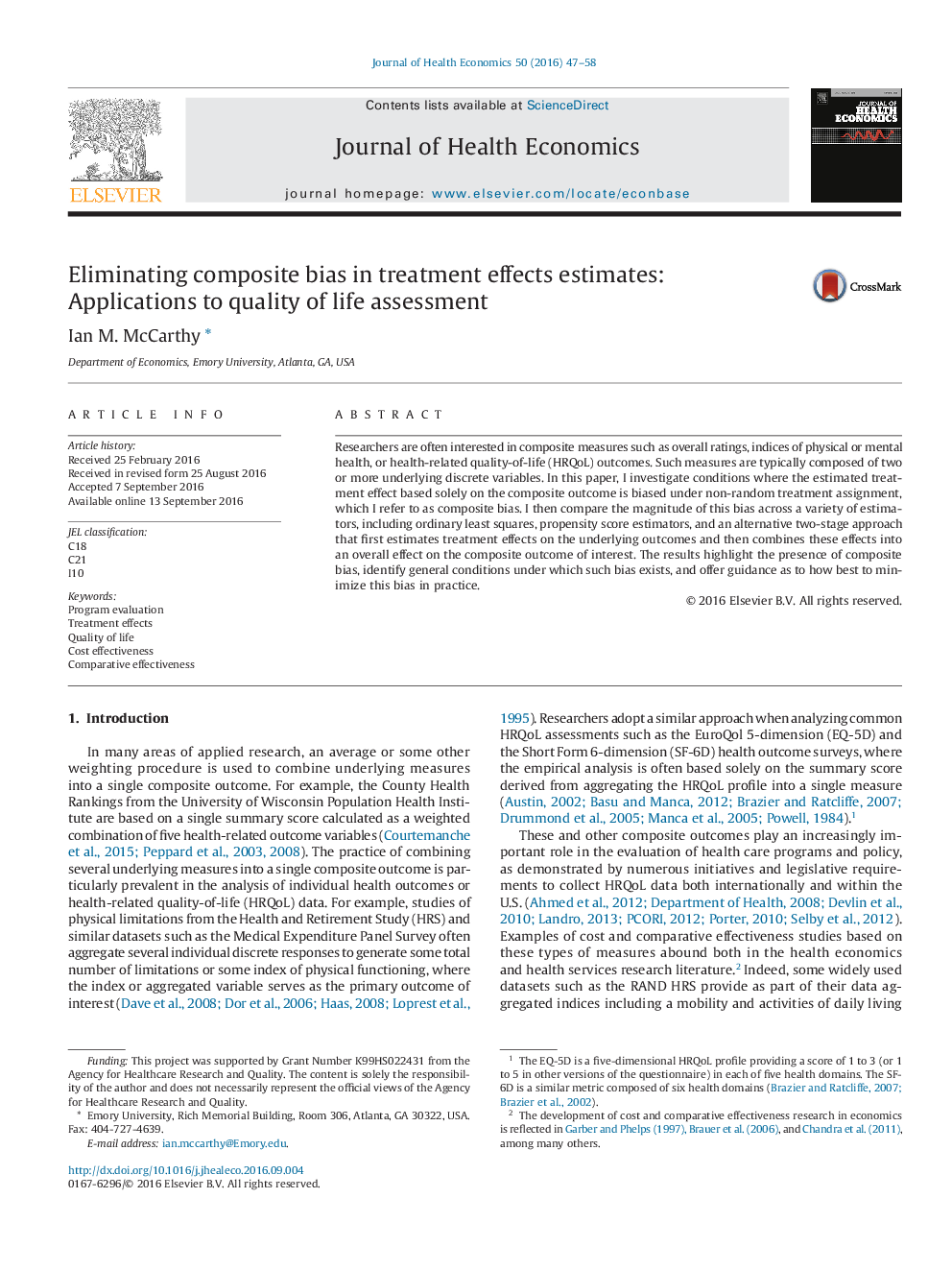| Article ID | Journal | Published Year | Pages | File Type |
|---|---|---|---|---|
| 5100797 | Journal of Health Economics | 2016 | 12 Pages |
Abstract
Researchers are often interested in composite measures such as overall ratings, indices of physical or mental health, or health-related quality-of-life (HRQoL) outcomes. Such measures are typically composed of two or more underlying discrete variables. In this paper, I investigate conditions where the estimated treatment effect based solely on the composite outcome is biased under non-random treatment assignment, which I refer to as composite bias. I then compare the magnitude of this bias across a variety of estimators, including ordinary least squares, propensity score estimators, and an alternative two-stage approach that first estimates treatment effects on the underlying outcomes and then combines these effects into an overall effect on the composite outcome of interest. The results highlight the presence of composite bias, identify general conditions under which such bias exists, and offer guidance as to how best to minimize this bias in practice.
Keywords
Related Topics
Health Sciences
Medicine and Dentistry
Public Health and Health Policy
Authors
Ian M. McCarthy,
